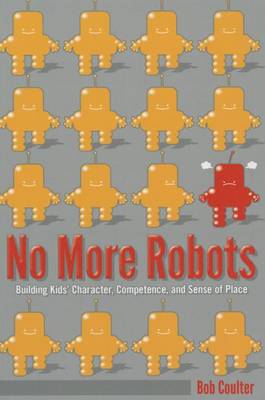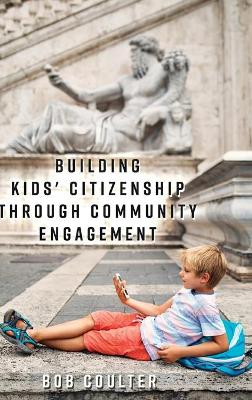[Re]thinking Environmental Education
2 primary works
Book 2
Place-based education offers a compelling opportunity to engage students in the life of their community. More than just taking a field trip, participants in a place-based project make sustained efforts to make a difference and learn basic skills along the way. Academic concepts come to life as real-world problems are investigated from a local angle. Even global issues can be connected to the community, such as the high school in Missouri that linked local land-use choices to the "dead zone" in the Gulf of Mexico. For teachers, place-based projects offer a chance for professional revitalization as they orchestrate complex and meaningful learning environments that go well beyond scripted curriculum mandates. Both teachers and students benefit from a new level of agency as they take ownership of their work. Drawing on his own experience as a teacher and more than a decade of work supporting teachers in crafting their own projects, the author outlines the many benefits of place-based education and describes the challenges that must be overcome if we are to realize its potential.
Book 12
Building Kids' Citizenship Through Community Engagement offers a compelling, empirically-based argument for giving young people opportunities to grow through productive involvement with their local community. Drawing on John Dewey's pragmatic frame of experience and concepts of bildung that inform educational practice in Europe, the book speaks directly to teachers and parents who are looking for a way to support young people in their efforts to become confident, self-directed citizens. Throughout, the book offers a paradigm for growth that counters the limits of narrow visions of schooling and equally thin out-of-school learning opportunities which serve to limit young people's potential.
In framing the argument, veteran educator Bob Coulter draws on more than 30 years of experience that includes extensive work with youth as a classroom teacher and in a variety of other community-based efforts, as well as 18 years of work as a mentor to teachers and parents. Key themes running through Building Kids' Citizenship Through Community Engagement include a cogent argument in support of young people assuming an active, age-appropriate role as citizens, as well as a modern updating of Dewey's concept of experience that is suitable for a technological age. These theoretical ideas are made tangible through specific recommendations for productive uses of digital technology and a critical review of several frameworks that have proven useful for designing and evaluating the quality of kids' community-based learning experiences.

